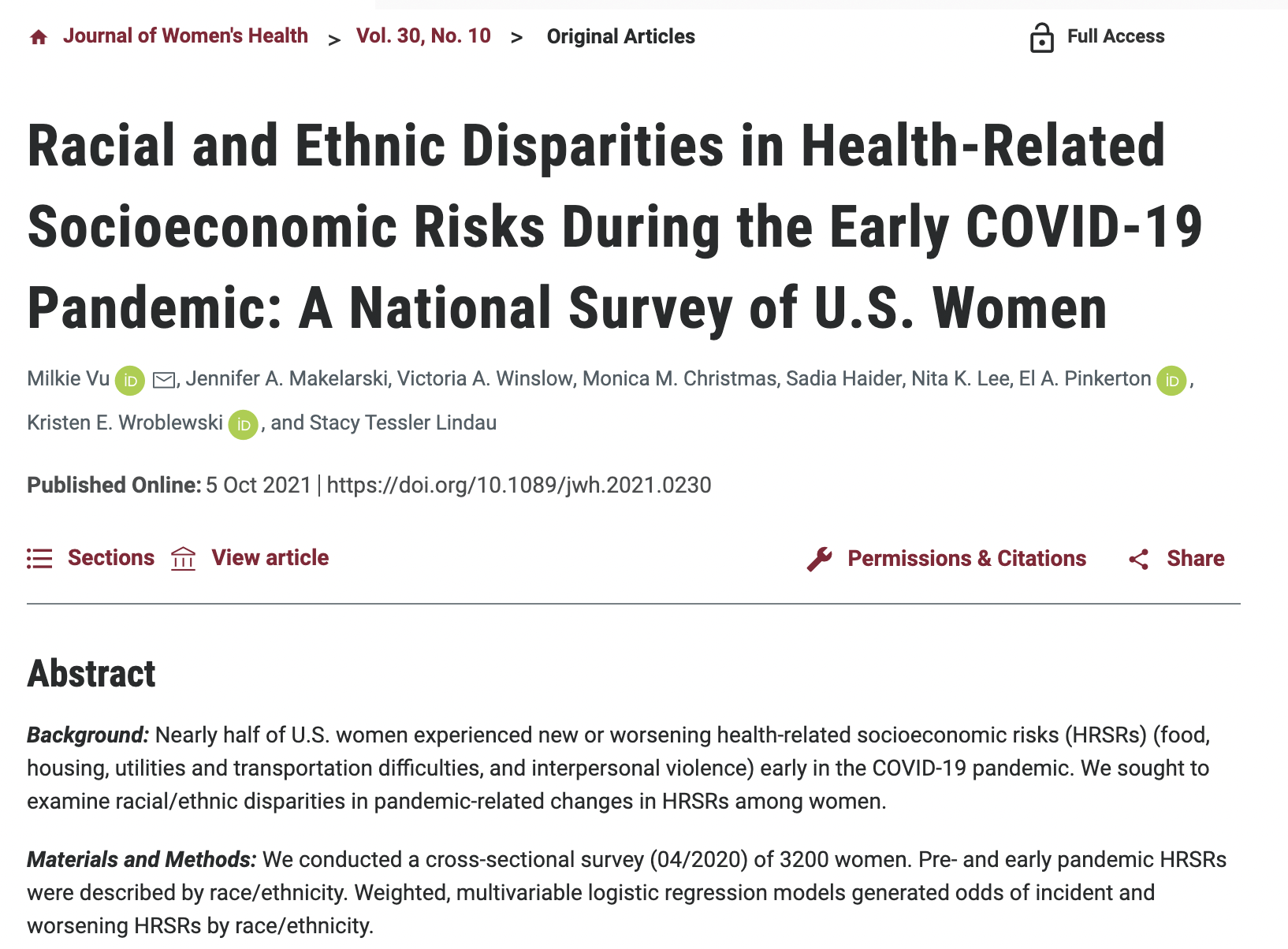National U.S. Women's Health COVID-19 Study
“Most national surveys tend to report aggregated findings rather than stratifying by gender. Those early studies gave us snapshots of the health and behaviors of the whole population, but gave us limited insight on women. Yet, women constitute the majority of the essential workforce, including healthcare workers, and we wanted to make sure that women’s experiences were being documented.”





